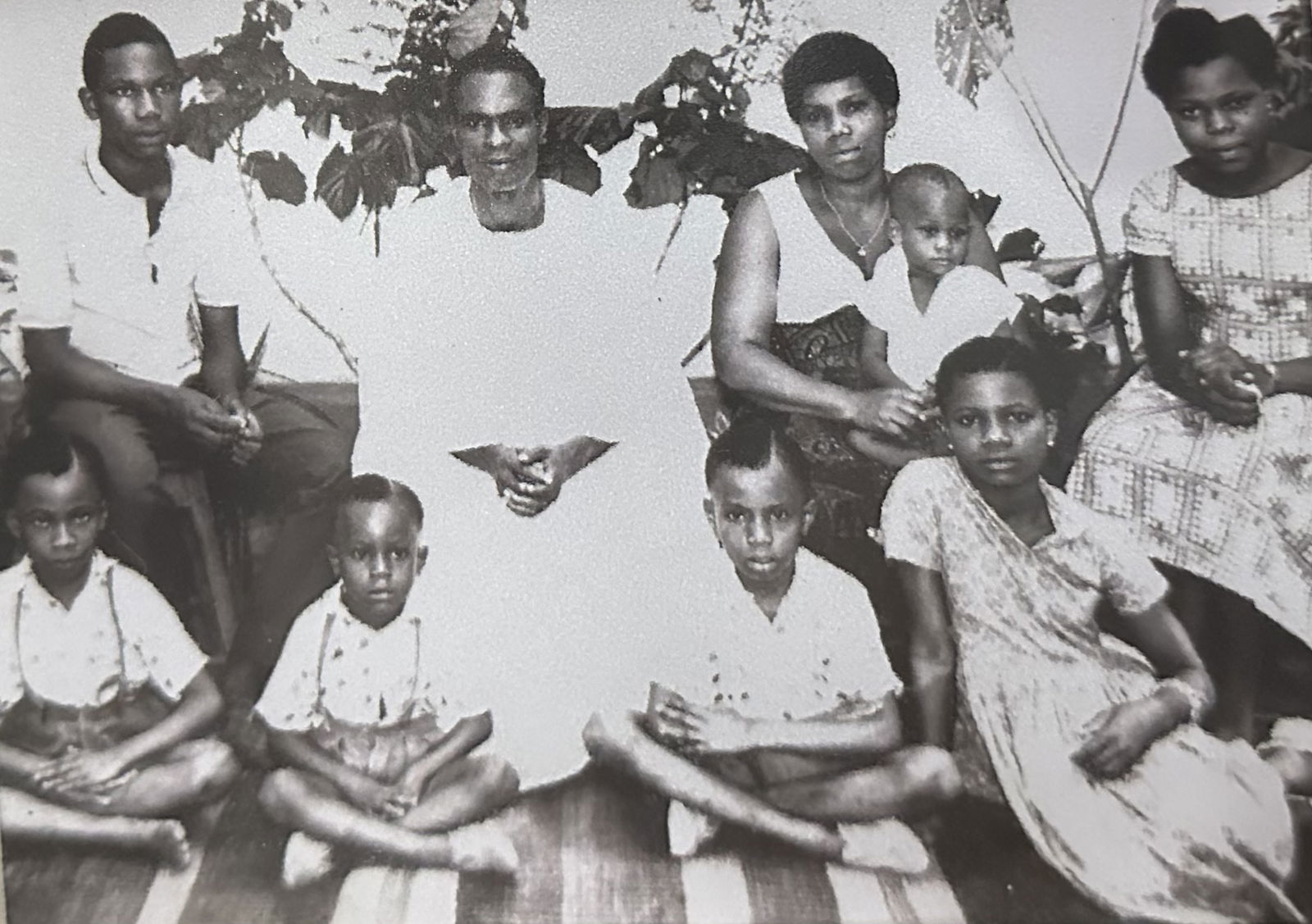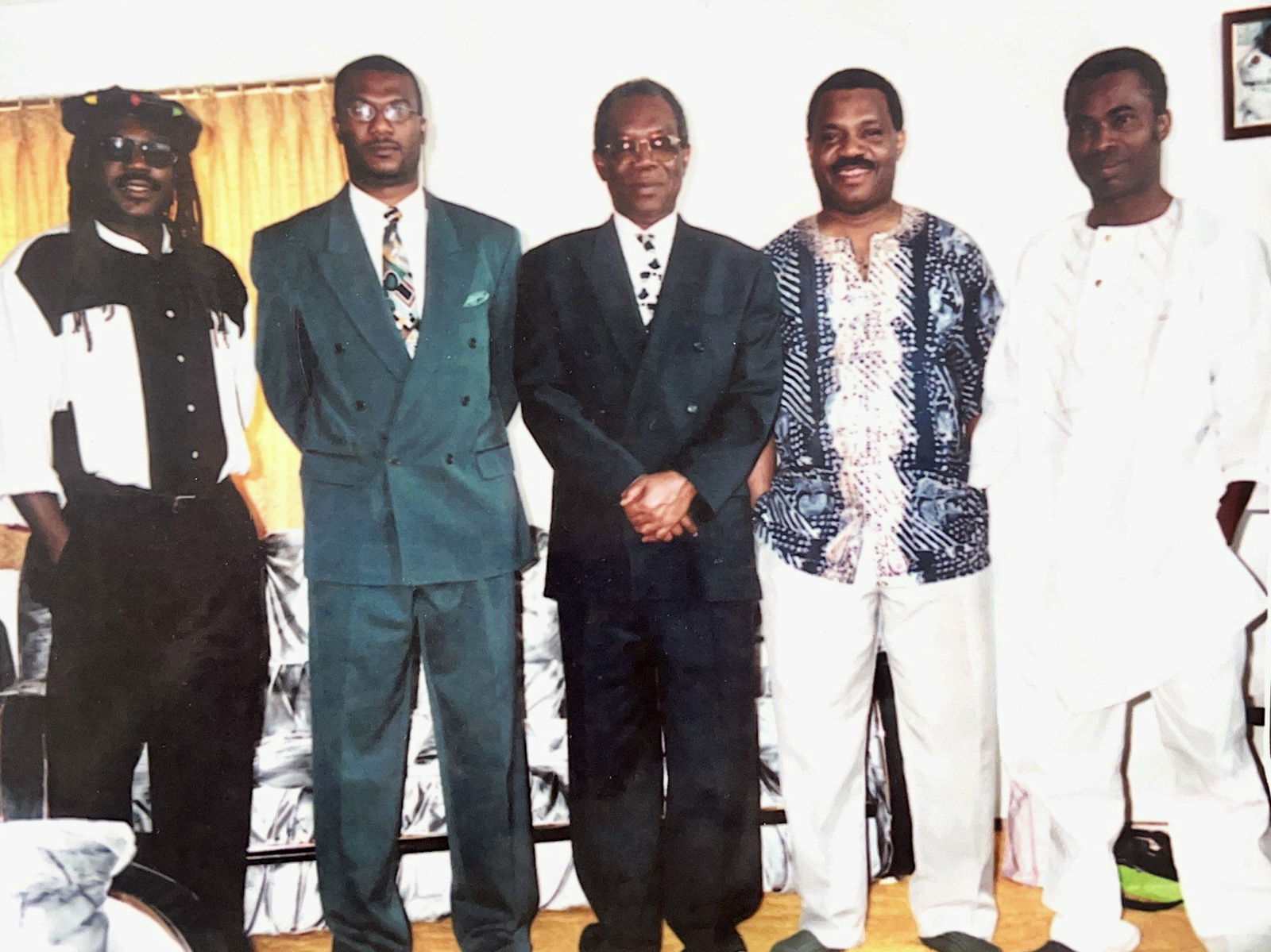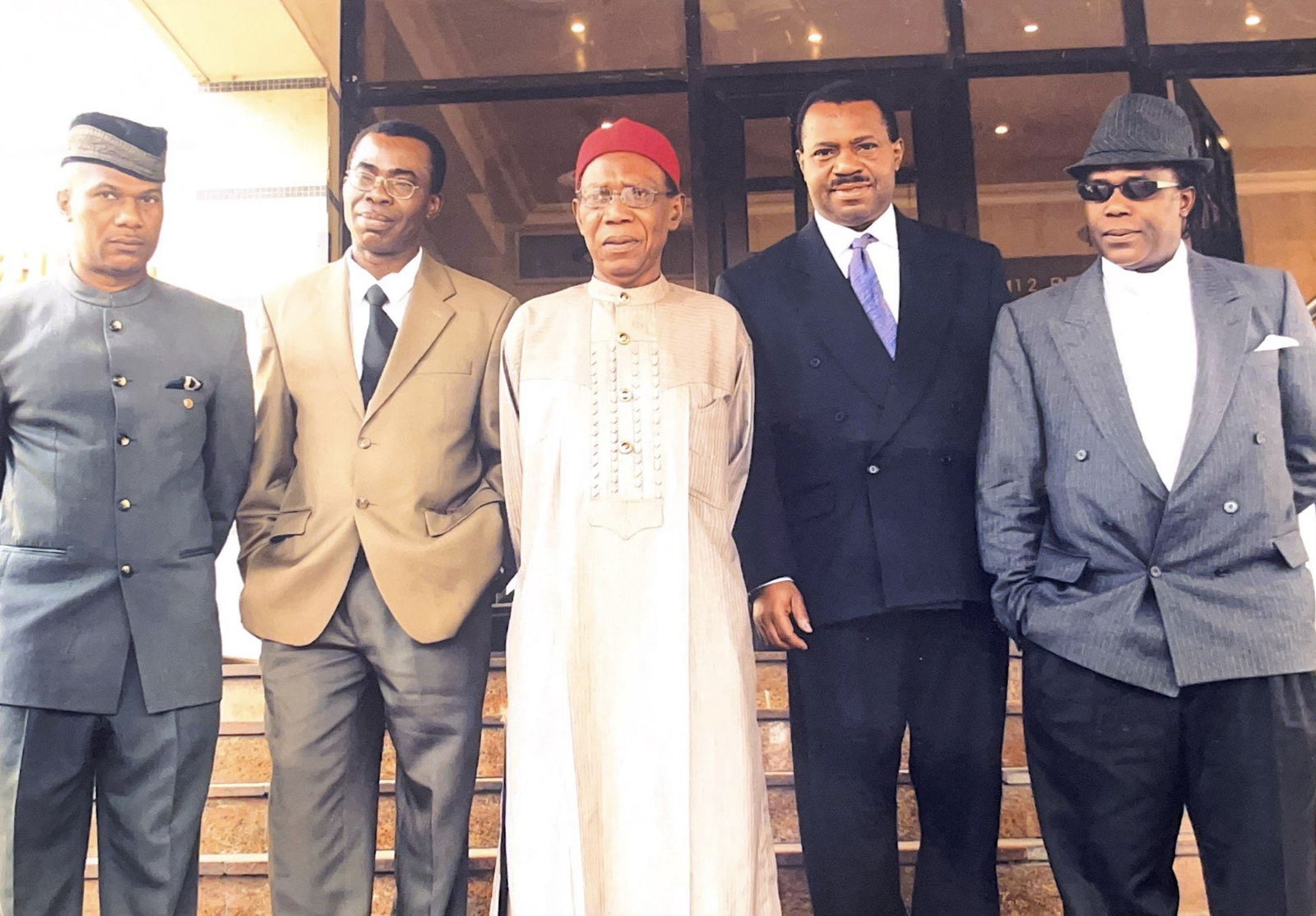
It has once been said that "those who have a 'why' to live can bear almost any 'how.'" It has also been said that "until the lions have their own historians, the history of the hunt will always glorify the hunter."
Dr. Benson Morah (or Ezenwanne) was a man of the people.
His 'why' — to build a legacy that reached beyond the expectations of one country. A legacy so deeply rooted in the fabric of his Awka and Igbo heritage. Everywhere he sojourned to, the Morah spirit and diplomacy would triumph against any hunter's pen. When Chinua Achebe wrote of the lion's historians, he spoke of great men like Ezenwanne.
Born of the soil and blessed by the Almighty, his essence stood to achieve against all odds. He, the family's grand Orji (Iroko) tree, stood as the symbol of resilience and fortitude. He was the foundation for growth without limit, and triumph without scorn.
Our father, a renowned headmaster, passed away shortly after the Biafran War had ended in early 1970. From that moment, the family's hope rested on the shoulder of Ezenwanne, a talented young man of just 25 years old. He was awarded the prestigious Tom Mboya Scholarship, allowing him to travel to Canada in 1972 to pursue his education. Upon his arrival in Canada, he led the charge in academia, graduating and becoming a lecturer at the University of Calgary. He wasted no time in assisting his childhood friend, Osita Nwofor, to join him in 1973, followed a year later by his younger brother, Caleb. By 1976, he had secured a visa for our mother and youngest, Erasmus, to visit Canada on holiday.
However, on September 13th, 1976, an unimaginable tragedy struck. After the wedding ceremony of Grace in Lagos, our mother suddenly died upon her return to Awka.
What once was a week of celebration transformed into mourning. A sense of hopelessness and defeat ate at the family's core, yet amid this storm, Ezenwanne was light. Quickly returning to Nigeria, he went to the Canadian Embassy for advice on how to unite with his three young, orphaned siblings left in his care. Through his efforts and the exceptional understanding of the Canadian immigration official, whom Ezenwanne never forgot, he was granted emergency visas for the three of us to join him in Calgary, Canada. In an instant, three secondary schoolboys connected solely by the memory of unconditional love and the lessons of their late parents, were transported to a new country and world under the watchful eye of the great Orji tree.
This story is one of many testaments to times that Ezenwanne held us together, even across oceans. In our first years in Canada, we lived in a small fourplex, 3-bedroom apartment in the northwest of Calgary, when sentiments towards immigrants were not as they are today. With the little he had, Ezenwanne took it upon himself to mortgage a house we could call our own: 284 Whitewood Place in the northwest part of Calgary. This home became a fixture in our lives,
even after he had returned to Nigeria in 1978, equipped with the tools to lead and persevere. He joined the federal government of Nigeria, working for the Census Board, which later became the National Population Commission, for almost ten years.

Shortly after returning to Nigeria, he met and fell in love with his wife, Chinwe Clementine Morah (nee Ezekwem), a chartered accountant and a senior staff at the United Bank for Africa. He was “thoroughly” proud of his wife and her professional success in the Nigerian banking sector dominated by men at that time. Throughout their marriage, he held her in the highest regard as a wife, partner, and diligent mother. The steadfastness of their love travelled with them as they moved from country to country.
During his time in the Government of Nigeria, Ezenwanne was pivotal in drafting Nigeria's first national population policy, officially adopted in 1988. He became the face of the Nigerian government on family planning and birth spacing. From there, admirably serving the people of Nigeria, he went on to an illustrious international career with the United Nations, first consulting for the World Bank and then working for the International Labor Organization before finally joining the United Nations Population Fund for 15 years, attaining the highest professional rank of Director-2 level (or Major General equivalent) before retiring in 2008.
To Ezenwanne, his family and Umunna were everything—the 'why' he stood for. He relished in his ties to his children, ensuring they received the best education and opportunities a father could give. Yet, with time, he increasingly became worried about what to do to ensure that their connection to Nigeria and the ways of our home people held firm against the swell of the developing world.
Earlier, in 1985, when he had similar worries that the pull of North America had started to take over his siblings, Ezenwanne summoned everyone back to Nigeria from across Canada to reconnect or, as he would say – "Think Home." He urged us to buy land in Nigeria, Awka specifically, to build a house and start families to call our own. He stood behind the principles of reinvesting in the communities that invested in us, the communities that built our lineage and housed our forebears.
It was not a surprise that, shortly after he retired from the UN in 1988, he incorporated the Isaiah and Cecilia Morah Foundation (ICMF) in July 2010 to honor and celebrate the lives and accomplishments of our parents and give back to his community. Ezenwanne loved his Umunna, the extended Morah family, his Amikwo and the Awka people.
He reveled in the unique traditions and the depth in which his roots as Igbo went without restraint or apology. Indeed, beyond being a man of culture and tradition, he loved nothing more in the world besides his "atu mmili palm wine," from a secret source and supplier in Nnibo of whom we never uncovered.
Ezenwanne was the brave heart lion's historian at every turn. He fought for our future and that of our children and children's children without requesting anything more for himself.

Over the years, after we had built our own families abroad, his lessons transformed into canons to live by. His heart and home became the center of the Morah institution in Canada, where our children and grandchildren found comfort in the knowledge that, in him, they would always have a place to call their own. There was not a moment that counted without his presence and prayer, nor thought without a whisper of his wisdom.
He was the man we turned to when we searched for answers as children, and he remained that man for his nieces, nephews, and grandchildren. Beyond his innumerable accomplishments, he was a man of simple taste — moved by the need to always know what was happening to his people and lend a helping hand. There can be no greater purpose, no great 'why' than that of the common good, and Dr. Benson Morah was the epitome.
Ezenwanne's most revered success was the legacy he left and the memory of his character as a humble, dependable, and calm listener. For generations upon generation, his impact will be felt through the lives of every Morah person, every country he sojourned, and every person he touched with his kindness. We are grateful to God to have been gifted a brother, a father and a guardian like him.
May he rest in our Lord’s peace, which passes all understanding, for no man is more deserving! Amen.
Your Isaiah O. Morah Family Siblings